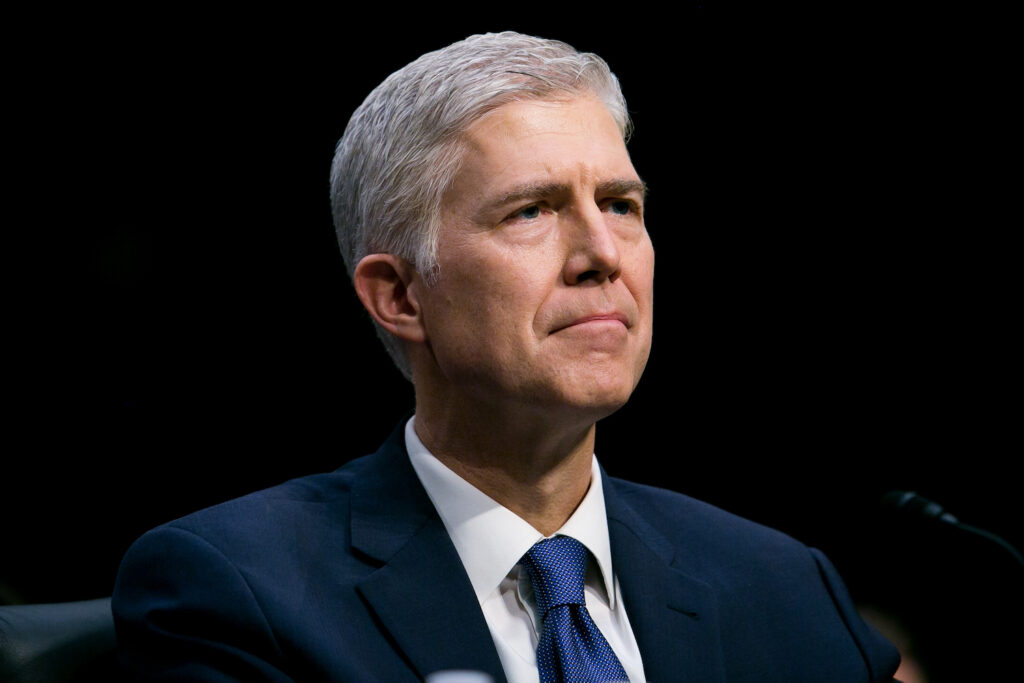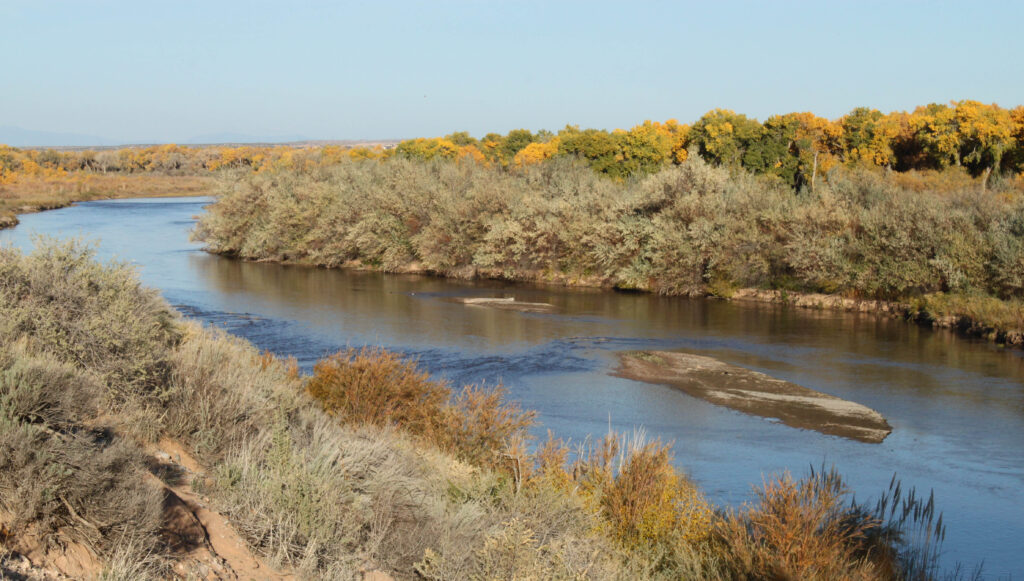
The Supreme Court on Wednesday heard arguments over the Biden administration‘s objections to a Rio Grande water compact between three Western states, prompting Justice Neil Gorsuch to quip that he’s coming to “regret” his 2018 ruling that said the federal government had special interests in the plan.
During oral arguments in the case known as Texas v. New Mexico and Colorado, several of the justices expressed skepticism that the Supreme Court, which has jurisdiction in disputes between states, was the proper venue to resolve the Biden administration’s objections to the water deal.
“You’re not a party in the sense that you have some interest here other than in administering the compact,” Gorsuch told Justice Department Assistant Solicitor General Frederick Liu. “At the end of the day, it’s a compact between states that we’re adjudicating here.”

The water dispute before the justices on Wednesday began in 2013 when Texas accused New Mexico of failing to meet its obligations under a decades-old agreement between the two states and Colorado to share the Rio Grande’s water. Texas accused New Mexico of too much groundwater pumping that had resulted in obstructions to Texas’s share of water.
The federal government found it shared similar interests and joined Texas’s complaint that same year. A court-appointed special master said he would have dismissed the government’s claims, leading the issue to make its way to the Supreme Court in October 2017. Gorsuch authored a unanimous opinion in March 2018 that allowed the then-Trump administration to intervene in the compact dispute.
A lengthy negotiation process began after Gorsuch’s ruling. The special master eventually found that the states should negotiate their own deal without the federal government’s involvement.

The states did manage to come to an agreement, but the administration argues the new deal did not address issues related to a 1906 U.S.-Mexico agreement, known as the Rio Grande Project, that was formed to ensure equitable water distribution via the construction of a dam in New Mexico.
Liu argued that the new deal between Colorado, New Mexico, and Texas would not conform to the 1906 plan, saying it violated the states’ original compact.
“Well, I think, if you look at the operative complaints in this case, the — the relief we’re seeking here is the same as the relief that Texas is seeking,” Liu said.
“Then how come they’re on the other side?” Gorsuch asked.
Liu responded, “What’s changed is a difference in litigating position.”
“I’ve got to say you’re making me regret that decision,” Gorsuch, a Trump appointee, said in reference to his 2018 majority opinion.
Other Republican-appointed members of the Supreme Court, including Justice Clarence Thomas, expressed skepticism that the Biden administration’s interests aligned with the states over the compact.
“Well, but Texas and New Mexico — and it’s rare that we have the states who actually agree on anything — but Texas and New Mexico have agreed,” Thomas said, asking if the federal government’s interests are still the same, “then why are you still here?”
Liu said the “claims are the same” but that the “interests have always been different.”
Jeffrey Wechsler, an attorney with Montgomery & Andrews Law Firm who is representing New Mexico in the lawsuit, argued the federal government was attempting to regulate the terms of the states’ agreement.
“What the United States is really arguing about is: How does New Mexico satisfy its obligations?” Wechsler said. “That is, which specific water users within New Mexico must shut down wells, how New Mexico should be administering water, and those sorts of intrastate issues that this court has held that are purely intramural disputes between competing water users in the state.”
The Supreme Court’s three Democratic-appointed justices appeared more sympathetic at times to the federal government’s interests in the dispute. Justice Elena Kagan argued the 2018 decision acknowledged the federal government’s interests in the case were a necessary factor and questioned why the states would try to remove it from the litigation.
“This is a compact the federal government is right in the middle of,” Kagan argued.
Justice Sonia Sotomayor, an appointee of former President Barack Obama, said that in 2018, “Texas was articulating the same claims as you,” referring to the federal government.
CLICK HERE TO READ MORE FROM THE WASHINGTON EXAMINER
“You could not anticipate that they would abandon you,” she added.
A decision in the case is expected sometime in June.





